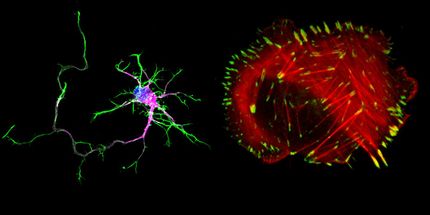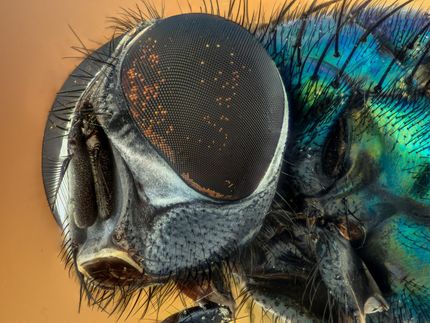Genetic mechanism linking aging to specific diets
The genetics of personalized dieting: Some day soon, genetic testing could identify what diet each individual should consume for a longer, healthier life
Your best friend swears by the Paleo Diet. Your boss loves Atkins. Your sister is gluten-free, and your roommate is an acolyte of Michael Pollan. So who's right? Maybe they all are.
In new research published in Cell Metabolism, USC scientists Sean Curran and Shanshan Pang identify a collection of genes that allow an organism to adapt to different diets and show that without them, even minor tweaks to diet can cause premature aging and death.
Finding a genetic basis for an organism's dietary needs suggests that different individuals may be genetically predisposed to thrive on different diets – and that now, in the age of commercial gene sequencing, people might be able to identify which diet would work best for them through a simple blood test.
"These studies have revealed that single gene mutations can alter the ability of an organism to utilize a specific diet. In humans, small differences in a person's genetic makeup that change how well these genes function, could explain why certain diets work for some but not others," said Curran, corresponding author of the study and assistant professor with joint appointments in the USC Davis School of Gerontology, the USC Dornsife College of Letters, Arts and Sciences, and the Keck School of Medicine of USC.
Curran and Pang studied Caenorhabditis elegans, a one-milimeter-long worm that scientists have used as a model organism since the '70s. Decades of tests have shown that genes in C. elegans are likely to be mirrored in humans while its short lifespan allows scientists to do aging studies on it.
In this study, Curran and Pang identified a gene called alh-6, which delayed the effects of aging depending on what type of diet the worm was fed by protecting it against diet-induced mitochondrial defects.
"This gene is remarkably well-conserved from single celled yeast all the way up to mammals, which suggests that what we have learned in the worm could translate to a better understanding of the factors that alter diet success in humans," Curran said.
Future work will focus on identifying what contributes to dietary success or failure, and whether these factors explain why specific diets don't work for everyone. This could be the start of personalized dieting based on an individual's genetic makeup, according to Curran.
"We hope to uncover ways to enhance the use of any dietary program and perhaps even figure out ways of overriding the system(s) that prevent the use of one diet in certain individuals," he said.
Topics
Organizations
Other news from the department science

Get the life science industry in your inbox
By submitting this form you agree that LUMITOS AG will send you the newsletter(s) selected above by email. Your data will not be passed on to third parties. Your data will be stored and processed in accordance with our data protection regulations. LUMITOS may contact you by email for the purpose of advertising or market and opinion surveys. You can revoke your consent at any time without giving reasons to LUMITOS AG, Ernst-Augustin-Str. 2, 12489 Berlin, Germany or by e-mail at revoke@lumitos.com with effect for the future. In addition, each email contains a link to unsubscribe from the corresponding newsletter.





















































